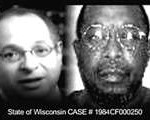The Wages of Speech
 Apparently, the Wisconsin Supreme Court is not the only one sharply divided on an array of issues and fighting over questions of recusal. In Michigan, the Supreme Court voted 4-3 to require that individual justices who have denied a motion to recuse themselves explain the reason in writing and to permit the Court to overrule the refusal to step aside. A Detroit Free Press columnist says that the Michigan court has been characterized by “back-biting, name-calling and playground-level cruelty” and adoption of the rule did draw sharply worded dissents. Sound familar?
Apparently, the Wisconsin Supreme Court is not the only one sharply divided on an array of issues and fighting over questions of recusal. In Michigan, the Supreme Court voted 4-3 to require that individual justices who have denied a motion to recuse themselves explain the reason in writing and to permit the Court to overrule the refusal to step aside. A Detroit Free Press columnist says that the Michigan court has been characterized by “back-biting, name-calling and playground-level cruelty” and adoption of the rule did draw sharply worded dissents. Sound familar?
Locally, there appears to be a concerted effort (spurred, in part, by an internal memo circulated within the State Public Defender’s office) to seek the recusal of Justice Michael Gableman in a number of criminal cases because he has allegedly expressed a general bias against criminal defendants. Justice Gableman has refused to step aside (the rationale for the motions would apply in every criminal case), and it is unclear whether the Court can compel him to do so.
I think the controversy raises some interesting questions about the interaction between campaign speech and recusal. I am writing a paper on the topic and thought I’d test drive a few of the arguments here as applied to our local controversy.

 At last month’s
At last month’s